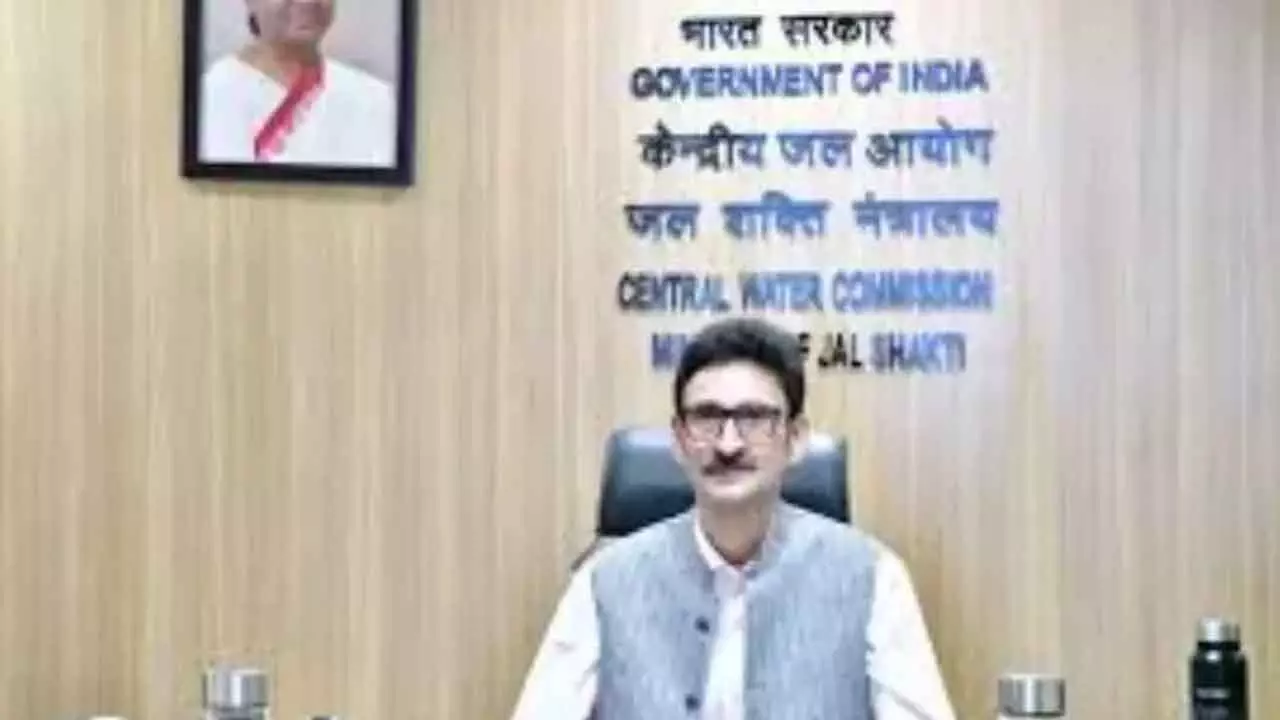Central Water Commission charting Vision 2047 course

New Delhi: The Central Water Commission (CWC) is charting a new course with its Vision 2047, focusing on addressing the evolving challenges posed by climate change, its Chairperson Kushvinder Vora said. In a conversation with Press Trust of India, Vora outlined the commission's strategic plan, which is divided into short-term, mid-term, and long-term goals aimed at bolstering India's water management infrastructure.
"We are creating Vision 2047 for ourselves, keeping in view the challenges, especially climate change, which has led to new emerging issues," Vora said. He said the strategy involves a comprehensive approach to deal with the immediate, medium, and long-term needs of water management in the country. In the short term, he said the CWC is concentrating on capacity building and the review and revision of existing guidelines. "Wherever needed, guidelines have to be upgraded, and new ideas must be brought in," Vora said.
One of the key areas under review is the Glacial Lake Outburst Flood (GLOF) consideration, where the commission is working on new guidelines to assess risk and manage water flow from glacial lakes and rainfall.
The CWC is also focusing on improving monitoring capabilities, which Vora described as crucial for handling the increasing frequency of extreme weather events. “We are now seeing more rainfall in less time, leading to flood situations in urban areas, even in regions like Rajasthan. This is all due to climate change,” he explained.
For its mid-term goals, the CWC is venturing into new studies and areas of research, particularly through the use of remote-sensing technology. “We are doing most of our assessments through remote sensing, whether it’s crop area evaluation or the performance assessment of irrigation projects,” Vora said.
The CWC is also developing a mobile app to enhance the monitoring of water bodies, supported by multiple memorandums of understanding (MoUs) with various organisations.
Looking further ahead, the CWC’s long-term goals include the development of indigenous software for modeling exercises, a key component of their future plans. “We are soon launching a centre of excellence for modelling, which will cater to many of our future needs,” Vora said. This centre will play a critical role in managing flood risks, particularly in the Himalayan region where glacial lake outbursts pose a significant threat, he added.
Vora explained the importance of these efforts, highlighting that water reaches dams in two ways - directly through rainfall and from glacial lakes, which can burst and cause flood-like situations.
He also said the government has decided to expand glacier monitoring in the Himalayan region, increasing the number from 902 to 2,500 to better predict and prevent disasters like GLOFs. “With climate change, risk analysis has become a crucial part of all our decisions, especially in water resources,” he added.
The CWC continuously conducts risk analysis of dams, using hydrological data spanning 30 years to assess how flood conditions have evolved over time, he said.
The CWC is also reviewing the design of all existing an Central Water Commission charting Vision 2047 course d under-construction dams vulnerable to GLOFs, ensuring these dams have adequate spillway capacity to handle extreme flood scenarios. A GLOF is a type of outburst flood caused by the failure of a dam containing a glacial lake. Moreover, conducting GLOF studies has been made mandatory for all new dams planned in areas with glacial lakes.


